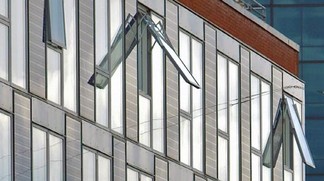Mar 20 2015
In a context marked by the search for better ways to achieve energy turning of Switzerland, nearly 600 participants gathered at the 13th National Photovoltaic Congress on March 16 and 17 this year in Basel.

This event is an important platform for exchanges on the latest results in research in the field of photovoltaic systems. Among the experts invited to the occasion, Prof. Emmanuel Rey of the Laboratory of Architecture and Sustainable Technologies (LAST) gave a lecture on architectural issues of BIPV integration in urban renewal process.
While still dependent on non-renewable primary energy sources (gas, oil and uranium), Switzerland is starting its energy transition. In this changing environment, the production of photovoltaic electricity has been multiplied by 6 between 2009 and 2012 and this increase is meant to last in the coming decades.
The issues, however, are not only quantitative but also qualitative. Currently, only a small potential percentage of buildingintegrated photovoltaic systems (BIPV) is valued in cities and urban areas. Among the issues to deal with, architectural issues are of paramount importance.
The emergence of new technologies and the inclusion of BIPV from the preliminary sketches suggest new paradigms for advanced integrated design. Exploring the challenges inherent in this development is at the heart of the ACTIVE INTERFACES interdisciplinary research project in the NRP 70, which focuses on the integration of BIPV in urban renewal process.